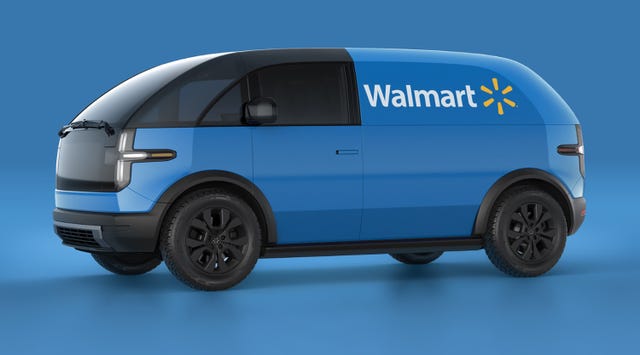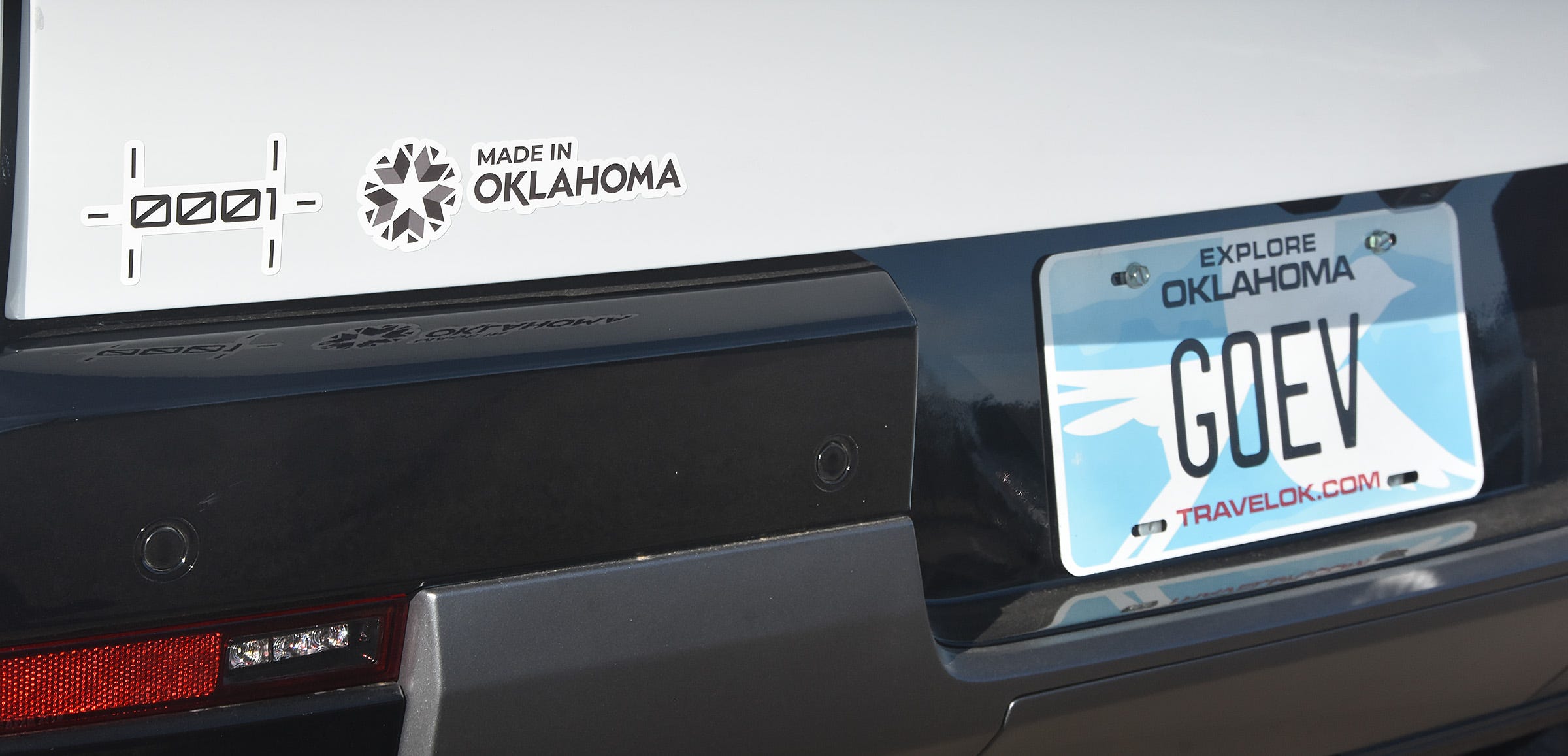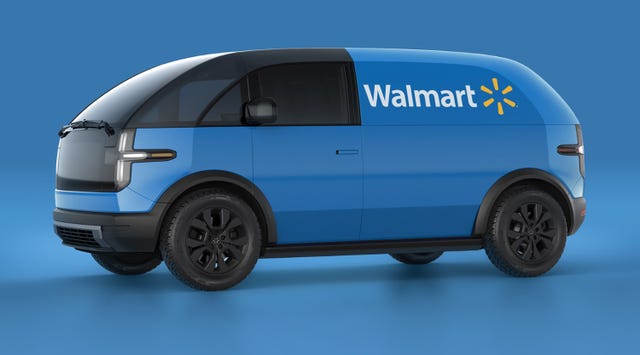Canoo Faces Headwinds in the EV Market
Canoo, the electric vehicle startup, once showed promise, with orders secured from major players like Walmart and the U.S. Postal Service, along with Department of Defense contracts. However, the company is now grappling with challenges that include layoffs, financial complexities, and an uncertain political environment.
Recently, Canoo laid off 23% of its workforce at its Oklahoma City plant, impacting employees for a reported 12 weeks. CEO Tony Aquila told Autoweek that this restructuring was part of a realignment of North American operations, and that “net-net we’re adding jobs in Oklahoma.”
Starting a car company is notoriously difficult. History shows that mass production is a significant hurdle, with relatively few companies succeeding after the launch of Chrysler in 1925 up to the rise of Tesla in 2003. The EV space, in particular, is littered with failed startups, including Fisker, Dyson, Bright, Coda, Detroit Electric, Lordstown, Sono Motors, and Think Global, among others. While companies like Rivian and Lucid have faced their own challenges, they continue to work towards production.

A Canoo vehicle in Walmart livery.
Canoo’s Struggles and Realignment
Canoo initially garnered attention for its innovative aerodynamic designs for electric vans and pickups. It established a 500,000-square-foot production facility in Oklahoma City and secured several orders. However, the company is now showing signs of distress, compounded by less EV-friendly policies from the incoming administrations and the company’s ultimate fate is not yet clear.
Founded in 2017 and originally named Evelozcity, Canoo has undergone significant changes. In early November of 2024, Canoo laid off 30 employees (23% of its workforce) at its Oklahoma City plant, for a reported 12 weeks. Aquila told Autoweek that these layoffs reflected a broad realignment of North American operations. He stated, “net-net we’re adding jobs in Oklahoma, as well as engineering roles.” Canoo also operates a battery module plant in Pryor, Oklahoma, and other facilities in Texas.
Financial Complexities and Leadership
Recent reports highlight the company’s complex financial situation. According to TechCrunch, Canoo generated approximately $886,000 in revenue in 2023, delivering 22 vehicles to clients such as the state of Oklahoma and NASA. Operational losses were reduced to $267 million, resulting in net 2023 losses of $302.6 million. However, Canoo paid $1.7 million to AFV, owned by Tony Aquila, for the use of a private jet in 2023.
In the second quarter of 2024, Canoo posted revenue of just $605,000.
Aquila has continued to invest in Canoo through AFV, most recently with a revolving line of credit. According to an SEC filing from November 5th, 2024, “AFV may provide working capital advances to the company of up to $12 million for a period of up to 12 months.” Aquila defends his investment by stating that he believes in the company’s mission. “America has to decide whether to lead, follow, or succeed, and I choose to lead,” he said.
Aquila explained to Autoweek that the travel reimbursements were for trips, some international, used to identify new markets for Canoo. The company’s fleet customers will want to see a stable company with strong servicing capabilities and the resources to grow. Aquila also indicated that despite the current challenges, the company is not aiming for mass production immediately and will continue to deliver sold vehicles as they are built. “Our goal is definitely to move up production in 2025,” he said. “We are big believers in American manufacturing, the heartland, and the workforce there. But the next four to six months will be very tough, and we’re in an uncertain political crossfire.”
Walmart and Canoo: A Shifting Relationship
In 2022, Walmart announced plans to purchase 4,500 Canoo LDVs, with an option for up to 10,000 more. The first vehicles were slated to hit the road in 2023. Walmart was encouraged by Canoo’s decision to create “an EV ecosystem in the heartland” and base its headquarters in Bentonville, Arkansas, which is also Walmart’s headquarters. This required a move from Torrance, California, where Canoo had been based since 2017. Canoo planned to establish an R&D center and small-scale production facility for package-delivery vehicles in Bentonville, putting them next to a major customer.
However, plans have since shifted. Some employees were hired in Bentonville in 2022, and a building was earmarked, but a year later, some of the initial hires were laid off. KNWA TV reported that creating 545 jobs in Arkansas, “are on hold indefinitely.” When asked about its current status with Canoo, a Walmart spokesperson said, “We continue to actively test electric delivery vans, including Canoo, within our last-mile delivery operation.” Aquila stated that the company is currently in a “slow build” period. Currently, according to the Oklahoma Office of Management and Enterprise Services, “At this time, there are no plans from current leadership to purchase more of the Canoo vehicles.”
Production and Future

Canoo riding on the rugged side.
The main production plant remains in Oklahoma, and the state government has been supportive. When the first three vans were delivered in late December 2023, Lieutenant Governor Matt Pinnell praised the company for creating over 1,300 jobs and making a “significant economic impact for the state.” These Lifestyle Delivery Vehicles were the first commercial vehicles built in Oklahoma since 2006. Aquila said Canoo has received roughly $1 million from the state so far, and that the company is not dependent on government assistance. In 2023, the estimated combined incentives from the state and the Cherokee Nation “is up to $113 million over 10 years.”
One of the vehicles was sent to the Oklahoma Office of Management and Enterprise Services, which told Autoweek, “Currently, OMES uses its Canoo for maintenance operations at state office buildings around the Oklahoma Capitol Complex…The cargo-style van, which allows for two passengers, is proving to be resourceful for our current facilities management applications but is somewhat limited for applications in other areas.”
Tesla faced its own financial challenges before succeeding. The reality is that major cash investments are required for production, and they require consistent burn rates before any profits are realized. The current EV market adds a significant level of uncertainty.



